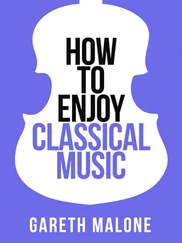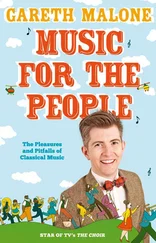STEPHEN FRY - OF CLASSICAL MUSIC
Здесь есть возможность читать онлайн «STEPHEN FRY - OF CLASSICAL MUSIC» весь текст электронной книги совершенно бесплатно (целиком полную версию без сокращений). В некоторых случаях можно слушать аудио, скачать через торрент в формате fb2 и присутствует краткое содержание. Жанр: на английском языке. Описание произведения, (предисловие) а так же отзывы посетителей доступны на портале библиотеки ЛибКат.
- Название:OF CLASSICAL MUSIC
- Автор:
- Жанр:
- Год:неизвестен
- ISBN:нет данных
- Рейтинг книги:5 / 5. Голосов: 1
-
Избранное:Добавить в избранное
- Отзывы:
-
Ваша оценка:
- 100
- 1
- 2
- 3
- 4
- 5
OF CLASSICAL MUSIC: краткое содержание, описание и аннотация
Предлагаем к чтению аннотацию, описание, краткое содержание или предисловие (зависит от того, что написал сам автор книги «OF CLASSICAL MUSIC»). Если вы не нашли необходимую информацию о книге — напишите в комментариях, мы постараемся отыскать её.
OF CLASSICAL MUSIC — читать онлайн бесплатно полную книгу (весь текст) целиком
Ниже представлен текст книги, разбитый по страницам. Система сохранения места последней прочитанной страницы, позволяет с удобством читать онлайн бесплатно книгу «OF CLASSICAL MUSIC», без необходимости каждый раз заново искать на чём Вы остановились. Поставьте закладку, и сможете в любой момент перейти на страницу, на которой закончили чтение.
Интервал:
Закладка:
Secondly, Pachelbel pioneered some musical stuff that we now more or less take for granted. Symbolism, for example, he invented ih.H. Well, more or less, with a prevailing wind, he did. He started doing things like minor key music means sad. (If you want to think of something minor key, think, say, the theme from Schindler's List.) And, consequently, major key music (try, say, Peter's theme from Peter and ilw Wolf) means happy. Sounds more or less obvious, now, of course, but, just like Everest, somebody had to get there first. Pachelbel even paved the way for Vincent Price, by deciding that the diminished seventh chord (think… well, Vincent Price, really) means evil. So, next time you watch the classic Masque of the Red Death, why not flick the mute on the remote control with your toe and lovingly whisper in your loved one's ear, 'Ah, yes, the broken diminished seventh, as pioneered by the seventeenth-century Teutonic music of the great Johann Pachelbel. Pass the Doritos, will you, love?'
But I did say he was in the history books for three reasons and here comes the third. For some inexplicable reason, despite the no-doubt hundreds of chorales, fugues and motets he wrote, he is, sadly, a one-hit wonder. The Joe Dolce 'What'sa-matter-you, HEY' of Nuremberg, the seventeenth-century St Winifred's School Choir. His one hit takes the form of a canon in the key of D. After years of research, scholars have proven, too, that it's for this reason that he gave it the name of 'Canon in D'. It is still a favourite today and is frequentiy given a rebirth in some TV commercial or other, making it the biggest thing that was going to happen to Nuremberg till someone at the back of a rally in 1938 shouted, 'Speak up!' Now, a brief round-up, if I may. TAXI! ? amp; H ? f course, you couldn't actually get a black cab back then, but, to be fair, sedan chairs were all the rage. They still wouldn't take you south of the river, but they did at least make you a little more mobile and they didn't cost too much. I could do with one right now, in fact, to take me to the… C18. Let's see, where is C18 on my map… Ah. Here. C18…the eighteenth century, here it is, just past Fulharn.
What else is popular in the brand, spanking new, 'should auld acquaintance be forgot', crisp, shiny eighteenth century? Well, sad to say, war hasn't gone out of fashion. Never will, I suppose. The current one is the War of the Spanish Succession. I guess who succeeded in Spain was a fairly crucial point because you got some major heavyweights battling it out. In the blue corner, you've got Britain, Austria, the Netherlands and Denmark. In the red corner, there's France, Bavaria and, not surprisingly, Spain. It was Louis XIV who started it, when he was looking round for a present for his grandson. Presumably they'd sold out of Beanie Babies, because Louis decided to give him Spain. To be fair, it might not have been totally Louis's fault - maybe they'd positioned it far too temptingly at the checkout, and it was an impulse buy. Who knows? Anyway, it all caused a bit of a hoohah, I can tell you - fisticuffs, name calling, the lot. By the end of it - and I'm talking, what, 1714 here - Britain was better off to the tune of Gibraltar, Minorca and Nova Scotia, while Austria had ended up with Belgium, Milan and Naples. Was it all worth it? I wonder. Personally, I'd have made them just spud for it. You know… 'Five potato, six potato, seven potato, MORE. Yeah… I get Spain!'
Other stuff of interest? Well, Captain Kidd has been hanged for piracy, back in 1701. What else? Oh yes, TAXES. Taxes, yes. If you thought we were bedevilled with taxes now, then just imagine what it was like back then. Taxes were the new rock and roll. So popular, it seemed as if there was a prize for the silliest thing you could introduce a tax on and still get away with it. There's the Salt Tax in England, obviously, as well as the Window Tax, which I think they should bring back for modern architects only. In Berlin, they came up with an Unmarried Woman's Tax. Nice! But the winner, and my personal favourite, has got to be Russia, which in around 1750 introduced a Beard Tax. What a great idea. Never did like getting too close to a man with a beard. Unless, of course, it was long and white and attached to a red man with knee-length black boots, as he hands over a Gameboy or an Action Man. But less about my parties.
Other news. The Mary, of William and Mary, has now died, and so, as Richmal Crompton would have said, it was just William, who no doubt went through not only a period of mourning, but also a period of handing out cards saying 'William' with the 'and Mary' crossed out, while his new ones came from the printers. Queen Anne, she of the unfortunately shaped legs, has also been and gone, and now we have George I. The recendy created Bank of England seems to be doing well, as is the Duke of Marlborough, or… The Butcher, as they call him. Pleasant. But for now, let's get on to some of the music of this time, and, in fact, to the big two, who really did dominate the age. Bach and Handel.
Johann Sebastian Bach and Georg Frideric Handel were both born in 1685 - the year Judge Jeffries' Bloody Assizes dealt a gory blow for James II after the Monmouth Rebellion. Bach was born in a small place called Eisenach some 200 kilometres north-east of Frankfurt. His was a musical family and at an early age he would obsessively transcribe music scores for his own personal education. After a spell in a youth choir, he got the first of various organ jobs, at Arnstadt. From then on, in a career that lasted till he was sixty-five at Mulhausen, Weimar and Leipzig, Bach wrote acres of superb music. Despite most of it being devoted to the greater glory of God, he did have a few small weaknesses. Coffee was one. At that time, coffee was seen as almost a dangerous narcotic, but Bach indulged his caffeine passion to such an extent that he even wrote a piece of music about it/
Another was numerology. Bach was convinced certain numbers were significant. If you give all the letters a numerical value pertaining to their position in the alphabet (so A = 1,? = 2, etc) then, as far as Bach was concerned, his second name added up to 14 (i.e. B2 + Al + C3 + H8 = 14). And so 14 became very significant for him, and he would write cantatas where the main tune had just 14 notes. One choral prelude, 'Wenn wir in hochsten Noten sein', has exactly 166 notes, which, if you care to add it up, is the numerical value of his full name. Look:
J + 0 + H + A + N + N = 62' I
S + E + B+A + S + T + I + A + N = 90 I total 166 19 5 2 1 19 20 9 1 14 f
2 13 8 I
•PThe Coffee Cantata, 'Schweiget stillc, plaudert nkbt' from 1732. Handel was born not a million miles from Bach, some 60 kilometres west of Leipzig. His family was an entirely different kettle of fish. His dad was a barber-surgeon - the very mention of the phrase 'barber-surgeon' makes me wince: apparently it was a 'jack of all trades' mini-doctor who would pull your teeth one minute then amputate your arm the next (and you'd only come in to say hello) - and Handel had to go against his dad's wishes in order not to follow him in the grisly family business. Ironically, he eventually went to university to read law, but became an organist on the side, at the Domkirche in Halle, before eventually leaving for Hamburg and a job playing violin and harpsichord in the Hamburg Opera. Gradually he began to get more and more of his operas staged, and set off round Europe to play, compose and take in the music of the continent's greatest living composers.
I think it's fair to say that, yes, although they did dominate the age -the age of baroque, that is - it was in very different ways. Despite the fact that they lived at exactly the same time, they were really like chalk and cheese. Handel was a great traveller who went all over Europe. Bach stayed at home. Maybe washing his hair. Handel was opera mad - in fact, set up the Royal Academy of Music specifically to promote opera and wrote operas till they were coming out of his ears. Bach wrote none.
Читать дальшеИнтервал:
Закладка:
Похожие книги на «OF CLASSICAL MUSIC»
Представляем Вашему вниманию похожие книги на «OF CLASSICAL MUSIC» списком для выбора. Мы отобрали схожую по названию и смыслу литературу в надежде предоставить читателям больше вариантов отыскать новые, интересные, ещё непрочитанные произведения.
Обсуждение, отзывы о книге «OF CLASSICAL MUSIC» и просто собственные мнения читателей. Оставьте ваши комментарии, напишите, что Вы думаете о произведении, его смысле или главных героях. Укажите что конкретно понравилось, а что нет, и почему Вы так считаете.










